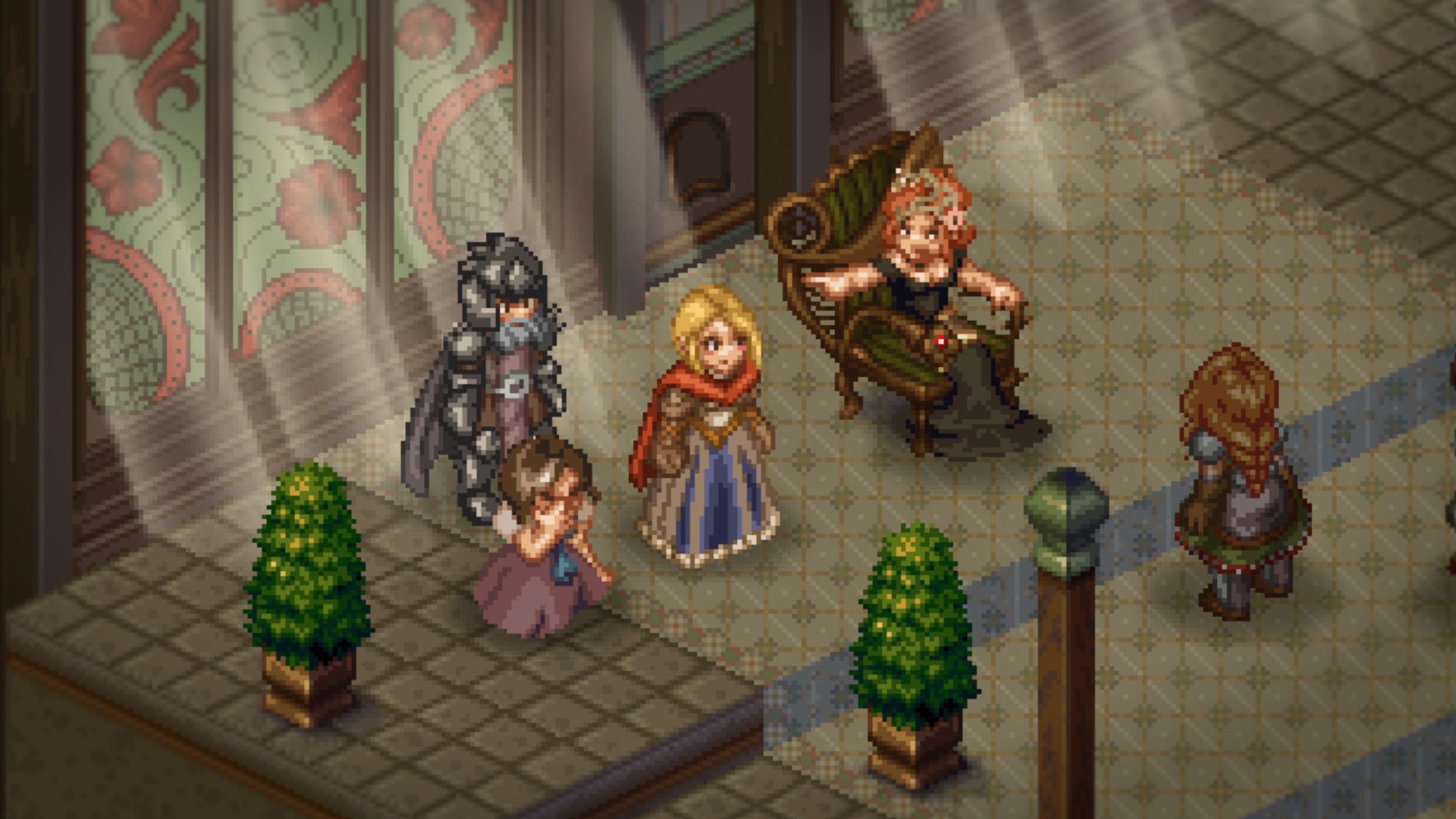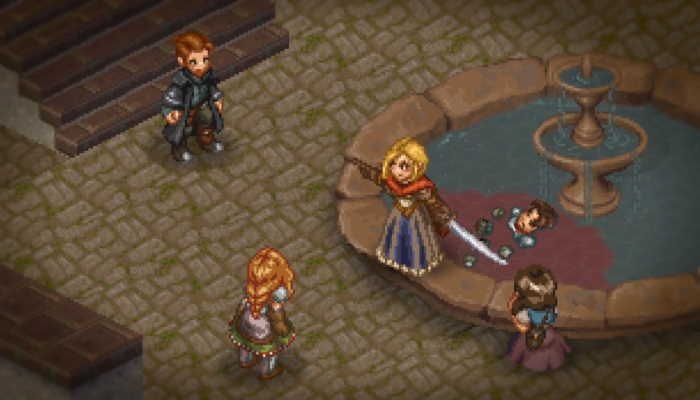Final Fantasy Tactics, with its intricate design and captivating gameplay, left an indelible mark on the tactical RPG genre. Many games have attempted to replicate its success, and Arcadian Atlas, the brainchild of Twin Otter Studios, is the latest contender. However, despite seven years in the making, this indie strategy RPG falls short, feeling more like a rough first draft than a polished gem.
Released on Steam on July 27, Arcadian Atlas was initially funded on Kickstarter in 2016. The game, set against the backdrop of a kingdom torn by civil war and royal family strife, follows the intertwined destinies of Vashti and Desmond, two soldiers caught up in the chaos. The story unfolds through beautifully rendered sprites reminiscent of Square Enix’s classics, with turn-based battles on a chessboard-like grid.

The narrative, while occasionally compelling, suffers from a sense of being underdeveloped and awkwardly executed. The plight of star-crossed lovers in the midst of civil war could have offered rich character exploration, but the dialogue often feels barebones or clumsy. The potential for a deeper, more engaging narrative is there, yet it struggles to emerge.
The core issue with Arcadian Atlas lies in its gameplay. Navigation and playability are cumbersome, lacking the creativity and depth needed to make battles exciting. RPG systems feel shallow, with brief skill trees primarily focused on damage upgrades. While boasting a dozen job classes, the inability to mix and match abilities limits strategic variety. Furthermore, combat disproportionately favors ranged units, reducing the tactical depth of encounters.
The battlefield mechanics contribute to the overall lackluster experience. Unit movements and attacks lack fluidity, and terrain has minimal impact on strategy. Projectiles pass through obstacles without hindrance, and melee units can strike adjacent targets regardless of elevation. This results in unbalanced encounters, with few tactical considerations or competing priorities.
In addition to gameplay frustrations, Arcadian Atlas exhibits technical nuisances, such as mandatory button presses after loading screens and awkward grid navigation. The overall experience becomes tedious, detracting from any potential enjoyment.

One bright spot in the game is the soundtrack composed by Moritz P.G. Katz. Featuring jazz-infused melodies dominated by saxophones and guitars, the music stands out with unexpected yet catchy tunes. Unfortunately, the memorable soundtrack is overshadowed by the game’s overall lack of depth and polish.
In conclusion, Arcadian Atlas struggles to live up to the legacy of its inspirations. While it has moments of potential, the game’s shortcomings in both narrative and gameplay result in a simplistic and tedious experience. Even for die-hard genre fans, the frustrations and limitations make it challenging to recommend this ambitious but flawed project.
Let’s find out more useful information with Akiba-games!
